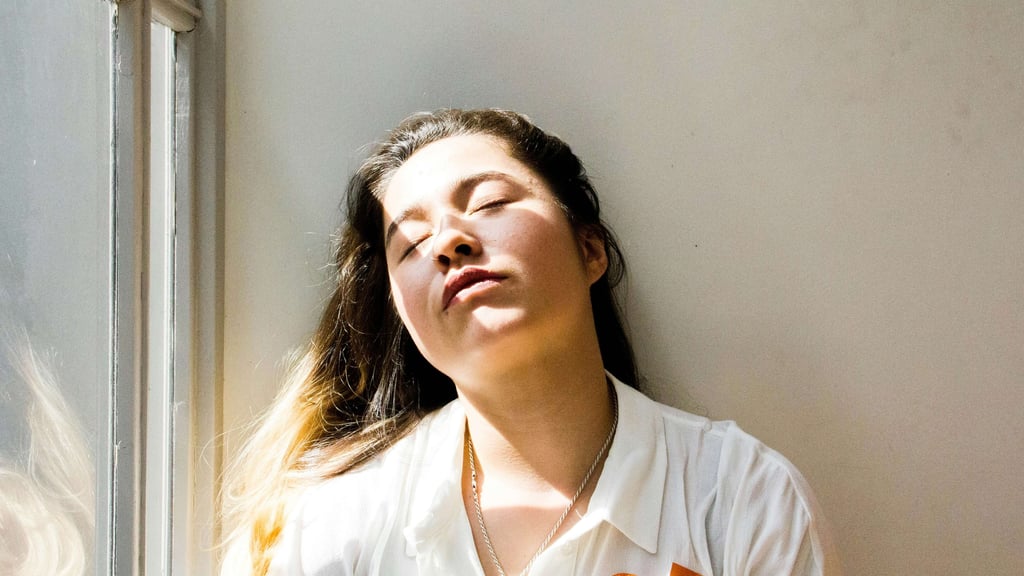Why You Feel Tired Every Spring (And How to Fix It)
WELLNESS
2/19/20255 min read


As the days get longer, the flowers start to bloom, and the world shakes off the grayness of winter, you’d expect to feel energized and refreshed, right? But instead, you find yourself dragging through the day, yawning constantly, and wondering why you feel so exhausted.
You’re not alone. Spring fatigue is real, and many people experience it without fully understanding why. It’s frustrating—especially when the world around you is waking up, and all you want to do is take a nap.
The good news? This seasonal slump isn’t permanent, and once you understand what’s behind it, you can make small adjustments to feel more energized and awake. Let’s dive into why you might be feeling so tired every spring—and, more importantly, how to fix it.
2. Seasonal Allergies Might Be Draining You
Spring allergies aren’t just about sneezing and itchy eyes—they can also make you feel completely wiped out. Even if you don’t have severe allergies, pollen and other airborne allergens can trigger inflammation, which puts stress on your immune system.
When your immune system is constantly fighting off allergens, your body spends more energy than usual, making you feel fatigued even if you’re getting enough sleep. On top of that, allergy medications like antihistamines can sometimes have sedative effects, leaving you feeling even more sluggish.
How to Fix It:
Check pollen levels before spending time outside and keep windows closed on high-pollen days.
Shower before bed to remove pollen from your hair and skin, preventing it from irritating you overnight.
Consider using a HEPA air purifier indoors to filter out allergens and improve air quality.
If allergies are severe, talk to your doctor about non-drowsy antihistamines that won’t make you feel more tired.
4. Spring Weather Affects Hydration and Energy Levels
Spring brings warmer temperatures, and while it’s not as extreme as summer, the shift can still impact hydration. Many people unknowingly become slightly dehydrated when the seasons change, and even mild dehydration can cause fatigue, brain fog, and headaches.
Warmer weather also increases pollen and environmental pollutants, which can make your body work harder to detox, increasing the need for hydration.
How to Fix It:
Make hydration a priority by drinking at least 8 glasses of water a day.
Infuse your water with lemon, cucumber, or mint to make it more refreshing and enjoyable.
Eat more water-rich foods like cucumbers, oranges, and watermelon to help maintain hydration naturally.
Reduce caffeine intake in the afternoon, as it can dehydrate you and disrupt your sleep cycle.
3. Your Body is Recovering from Winter Nutrient Deficiencies
During the colder months, many of us consume fewer fresh fruits and vegetables, spend less time outdoors, and generally move less. This can lead to low levels of essential vitamins and minerals, especially vitamin D, magnesium, and iron—all of which play a major role in energy levels.
Vitamin D, often called the sunshine vitamin, helps regulate mood and energy. Since we get most of it from sunlight, winter can leave us with low levels, making the transition into spring feel extra exhausting. Iron and magnesium are also crucial for preventing fatigue, and if your diet has been low in these nutrients, your body may be struggling to keep up.
How to Fix It:
Increase iron-rich foods like spinach, lentils, nuts, and lean meats. If you're feeling extra sluggish, consider getting your iron levels checked.
Spend 15-30 minutes outdoors daily to boost vitamin D levels naturally. If this isn’t possible, you may need a supplement.
Eat more magnesium-rich foods like bananas, almonds, avocados, and dark chocolate to help with energy production.
5. You Might Be Experiencing Spring Fatigue Syndrome
Yes, "spring fatigue" is a real thing. As the seasons change, our bodies go through a period of biological adjustment, where hormone levels fluctuate.
During winter, our bodies produce more melatonin (the sleep hormone) due to reduced sunlight exposure. In spring, as daylight increases, melatonin levels drop while serotonin (the "feel-good" hormone) starts rising.
This shift can cause temporary fatigue, mood swings, and even mild depression as your body tries to rebalance itself.
How to Fix It:
Spend more time outside in natural daylight to help your body adjust faster.
Exercise regularly to boost serotonin and improve sleep quality.
Stick to consistent meal times to support your body's natural rhythm.
Be patient—spring fatigue usually passes within a few weeks as your body fully adapts.
1. Your Body is Adjusting to More Daylight
After months of cozy winter darkness, the sudden increase in daylight can throw your body out of sync. Our circadian rhythm, or internal body clock, is heavily influenced by natural light. The longer days in spring mean your body is suddenly exposed to more sunlight, which can disrupt your sleep cycle and make you feel out of balance.
Even though more sunlight should technically give you energy, it also means that your body might struggle to recognize when it’s time to wind down for sleep. If you’re staying up later because of the extended daylight but still waking up at the same time, your sleep debt starts to build—leading to that sluggish, groggy feeling.
How to Fix It:
Try to wake up and go to bed at the same time every day, even on weekends. This helps regulate your internal clock.
Limit screen exposure in the evening—the extra daylight already pushes your sleep back, and blue light from devices makes it worse.
If natural light is keeping you up too late, consider using blackout curtains or a sleep mask to help your body adjust.






How to Regain Your Energy This Spring
Feeling tired every spring isn’t just in your head—it’s a natural response to seasonal changes. The good news? There are simple, effective ways to fight spring fatigue and feel more energized as the season unfolds.
By supporting your circadian rhythm, managing allergies, replenishing essential nutrients, staying hydrated, and giving your body time to adjust, you’ll soon shake off that lingering tiredness and fully enjoy the vibrancy of spring.
If you’ve been struggling with low energy, try incorporating one or two of these small changes into your daily routine. Even minor shifts can make a huge difference in how you feel.
How do you feel during spring? Have you noticed seasonal fatigue in yourself? Let me know in the comments!




Read More:
5 Ways to Refresh Your Home for Spring Without Decluttering
The Ultimate Spring Self-Care Reset (feel lighter an recharged!)
Willow & Linen
Embrace slow living and create cozy moments.
let's stay in touch
© 2024. All rights reserved.
